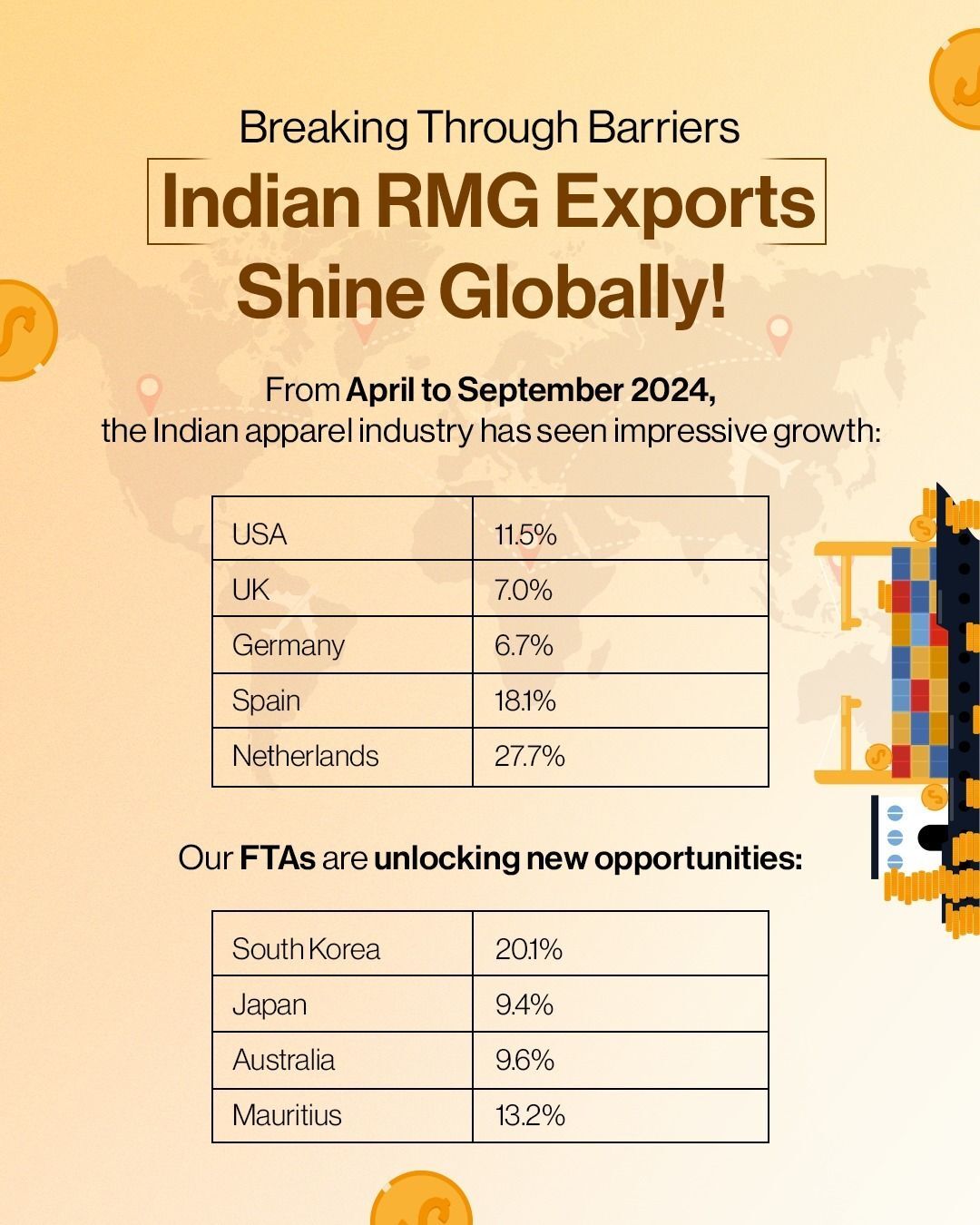"Moving away from its ‘take-make-waste model, the European Commission is motivating brands to recycle and reuse materials and products. These brands are also being influenced by their consumer perceptions who strongly emphasise on sustainability. A fashion industry report published in May 2019 revealed, two-thirds of consumers view sustainability as being very important with around one-third favouring brands adopting positive environmental and social practices."
 Moving away from its ‘take-make-waste model, the European Commission is motivating brands to recycle and reuse materials and products. These brands are also being influenced by their consumer perceptions who strongly emphasise on sustainability. A fashion industry report published in May 2019 revealed, two-thirds of consumers view sustainability as being very important with around one-third favouring brands adopting positive environmental and social practices.
Moving away from its ‘take-make-waste model, the European Commission is motivating brands to recycle and reuse materials and products. These brands are also being influenced by their consumer perceptions who strongly emphasise on sustainability. A fashion industry report published in May 2019 revealed, two-thirds of consumers view sustainability as being very important with around one-third favouring brands adopting positive environmental and social practices.
Greenpeace says, around 10 per cent of the 3,500 chemical substances used to turn raw materials into textiles are hazardous to the environment. Production and consumption of clothes constitutes about 6.7 per cent of the global climate impact, while aviation and shipping account for 4.5 per cent of global carbon dioxide emissions. In 2017, the industry committed to lessening its environmental impact by boosting the volume of collected or resold used garments and increasing the share of garments made from recycled post-consumer textile fibres.
However, an annual assessment by the Global Fashion Agenda (GFA), the Sustainable Apparel Coalition (SAC) and the Boston Consulting Group notes that progress on sustainability in fashion has slowed over the past year. Sustainability is still not a key consideration in purchase decisions as brands are lured by the inexpensive options offered by fast fashion.
and the Boston Consulting Group notes that progress on sustainability in fashion has slowed over the past year. Sustainability is still not a key consideration in purchase decisions as brands are lured by the inexpensive options offered by fast fashion.
Manifesto to develop European vision for textiles
At the recent Copenhagen Fashion Summit, held on May 14, 2019, industry leaders presented a manifesto urging policymakers to co-develop a European vision for textiles in a circular economy. The manifesto is a product of collaboration between the European Apparel and Textile Confederation (Euratex), the Federation of the European Sporting Goods Industry (FESI), the International Apparel Federation (IAF), the Sustainable Apparel Coalition (SAC), and Global Fashion Agenda (GFA).
The manifesto suggests, though a large part of the industry is committed to promoting a circular economy, systems and tools required for this are currently inadequate in the country. The manifesto sets out some points to reframe the issue, such as considering the circular economy for textiles as a global issue and not a regional one and requesting that the whole industry be part of the discussion.
Innovations, designs to boost circular economy
Industry leaders say, for a circular economy to function, the industry needs to use new technological innovations that help separate fibres for reuse and up-cycling. It also requires better design and materials. A major part of the product’s environmental impact can be determined at the design stage. However, for this the industry needs to collaborate with textile and fiber makers to determine if the clothing is fit for recycling.
The manifesto demands policies tailored to SMEs and multinational fashion brands, as well as regulations to “nudge” consumers into rethinking how they use and dispose of textiles. Some industry leaders, such as H&M, have taken this matter into their own hands. They have installed a miniaturised version of their recycling technology at their stores to show how their used clothing can be recycled.
While there is no law subject to waste-stream legislation in the same way as, the European Commission’s moves in this direction, need to be considered seriously and a new EU waste law targeting such products frame in the near future.












